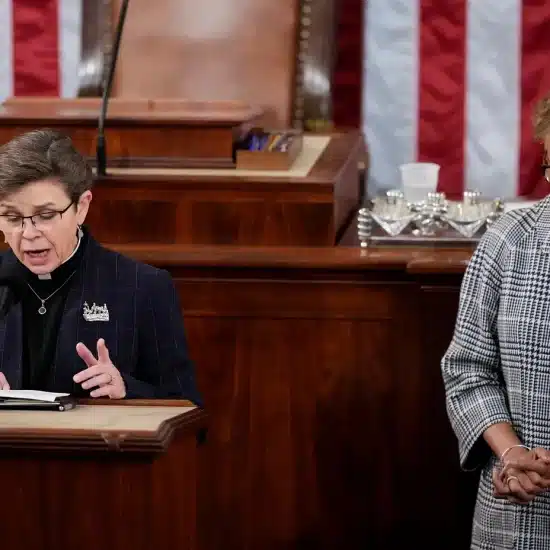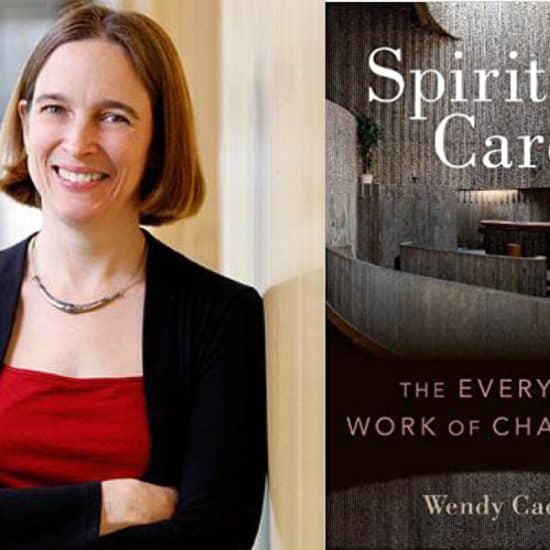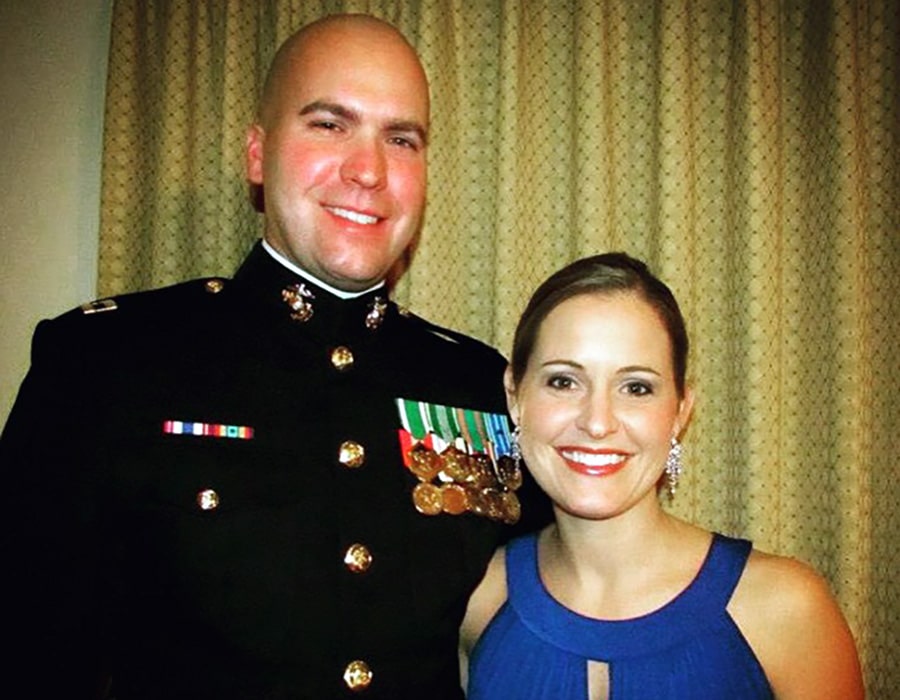
JACKSONVILLE, N.C. (BP) — As a 10-year, active duty service member in the Marine Corps, Brian O’Day regularly moved with his family. He traveled to 15 different countries including deployments to Iraq and Afghanistan.
About eight years into his military service, O’Day discerned God’s calling him to ministry — to establish a church in a military community with a consistent Gospel witness.
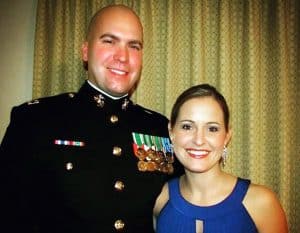
Brian O’Day and his wife, Kelli, at a Marine Corps birthday ball. O’Day served in the Marine Corps on active duty for 10 years, traveling to 15 different countries. Now, he serves as the founding pastor and elder at Pillar Church Jacksonville, N.C., and is a catalyst for church planting in military communities through The Praetorian Project. Photo submitted by Brian O’Day.
“I felt like God was calling me not to move around and jump from church to church,” O’Day said, “but instead serve in one of those churches, that sat still in a military community and ministered to and pastored and shepherded military service members and their families.”
That call came while O’Day was stationed at the Marine Corps base in Quantico, Va., and attending Pillar Church in Dumfries, Va. Now he serves on the leadership team at Pillar Church Jacksonville, N.C., a church that O’Day started in his family’s home on Jan. 6, 2013. O’Day became executive director of the Praetorian Project in May of 2019, which exists to establish a network of Gospel-centered churches near military installations around the world.
Planting new churches in military communities is one of the focus areas of the North American Mission Board’s (NAMB) Send Network, NAMB’s church planting arm. As the endorsing entity for Southern Baptist chaplains, NAMB encourages both established churches and new churches to involve chaplains in their ministry strategy.
“Southern Baptist military chaplains have the primary responsibility of providing religious services and activities for their service members, veterans and the surrounding military community,” said Doug Carver, NAMB’s executive director of chaplaincy.
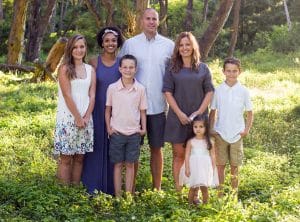
Brian O’Day with his wife, Kelli, and their five children. After serving in the Marine Corps for 10 years, O’Day became the founding pastor of Pillar Church Jacksonville, N.C., where he currently serves as an elder. O’Day is currently the executive director of The Praetorian Project, a network focused on planting churches in military communities. Photo submitted by Brian O’Day.
“Churches can work intentionally to prayerfully support SBC-endorsed military chaplains and military church plants,” Carver continued, “regularly including them in local church events and other denominational activities.”
Serving in a church that has a major focus on military service members involves a number of unique challenges. Military families move often, and the soldiers deploy for months at a time. Those hurdles should not discourage any church’s outreach to military members.
“Everyone, every believer, needs a healthy local church,” O’Day said. “Even if they move a lot, even if they deploy a lot, they need a healthy local church. We want to plant churches near these service members and their families.”
Aside from meeting the need for Christians to have a local church, O’Day also emphasized the need for churches to provide access to the gospel to everyone, “even highly transient service members.”
The transitory nature of military life, however, provides opportunities alongside those challenges. Moving every few years can make it difficult to connect with a local church, but the travel opens up doors for ministry as well.
“We want these service members to take the gospel with them to all of the different places they go,” O’Day said. “I was in 15 different countries in 10 years of active duty, and I took the gospel with me. We want others to do likewise.”
Reaching out to members of the military requires intentionality, O’Day said. There are opportunities for churches to connect by providing counseling before, during and after deployment.
“The relationship between the local church and the military community involves a continuous relationship building and education process between military chaplains, church plants near military communities (CPMC) and local Southern Baptist churches,” said Carver.
Military chaplains will have insight into the most pressing needs affecting a local military community, and they can share those opportunities with churches.
“Local churches can greatly support the military community by offering value-added ministry activities such as biblical counseling, parenting classes, marital counseling, financial planning seminars, and grief and trauma counseling,” Carver said.
Churches may be intimidated or concerned about asking military members about discipleship, but O’Day reminded churches that they are used to and understand training.
“They need to be discipled as they continue to grow, in their faith, in their maturity, as they grow in their influence, we want to see them grow in spiritual maturity as well,” O’Day said.


